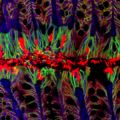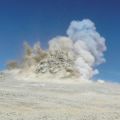Online help to democratise global health research
The parts of the world that would benefit most from research on the biggest health problems – like malaria, HIV, maternal health problems and diarrhoea – are also the regions where that research is most lacking.
Crucial evidence is not being generated because many doctors and nurses on the ground lack research experience and support. Effort is also regularly duplicated or conducted using different criteria in different territories and studies. Sometimes studies fall by the wayside from lack of simple resources and guidance on best practice. The development of better and more local research in the area of global health is crucial.
Joby George, a research nurse in Medanta, India, says, 'The initial step in conducting research is in understanding the research process, and this can be quite a barrier to getting people to start doing research. Nurses, who are the pillars of healthcare, often have research questions they want to work on but due to a lack of resources and a high workload they sometimes just want to treat patients and go home. Nurses therefore don’t pursue research.'
This is where the Global Health Network comes in.
Developed and conceived in Oxford, it's a free online platform for health workers and researchers around the world to exchange knowledge, share methods and form collaborations. Since its launch in 2011, the site has had over 260,000 visits from people in 150 countries, thousands of resources have been accessed, and over 20,000 free eLearning modules have been taken by those who otherwise may not have access to such training.
Today, the network has launched a new toolkit designed to help researchers conduct rigorous health studies. The Global Health Research Process Map is an open-access online resource which aims to provide the guidance, training and support that researchers need to run their own studies, wherever they are in the world.
Oxford University's Dr Trudie Lang is director of the Global Health Network, and works in the Tropical Medicine division of the Nuffield Department of Clinical Medicine. She says: 'We're very excited to launch the Global Health Research Process Map because this will make the process of initiating global health research simpler, and the results more accurate and more locally relevant.
'We've spoken with many researchers around the world who have been looking for a tool like the Global Health Research Process Map – to let them focus on their work instead of spending their crucial research time duplicating effort and searching for advice.'
The Process Map is the product of four years of best practice gathered and refined by those using the Global Health Network platform.
It is a tool that centralises the information and resources necessary to carry out rigorous and effective global health studies, and takes people through the process of conducting accurate research, step-by-step. This is important because there is a lot of evidence that shows that locally-led research rarely happens in low-income settings because health workers lack research skills and any access to training and support.
Researchers also have the opportunity to exchange ideas with others along the way, aiding collaboration and allowing everyone to learn from the experiences of previous studies.
'The Process Map is also a democratic tool. Research conducted in developing countries needs to be to the same standards of that conducted in Western countries and everywhere else around the world,' says Henok Negussie of Brighton & Sussex Medical School, who is coordinating a trial in northern Ethiopia. 'I believe the Process Map provides guidance for researchers to standardise the process that they need to consider, and ensures that high-quality research is conducted.'
Morenike Ukpong, who works on HIV prevention as an associate professor at Obefemi Awolowo University in Nigeria, agrees. 'I really like the concept of the Process Map,' she says, ‘it shows the complex – yet interactive – nature of developing a clinical trial but in a way that’s simple to navigate. I haven’t seen anything like this before. I’ll be using it as a teaching platform, and also as a networking platform.’
 Shootout at the OK Colon
Shootout at the OK Colon Counting quantum cards
Counting quantum cards Blasting back to the Big Bang
Blasting back to the Big Bang Explosions, volcanoes & risks
Explosions, volcanoes & risks Valuing our oceans
Valuing our oceans